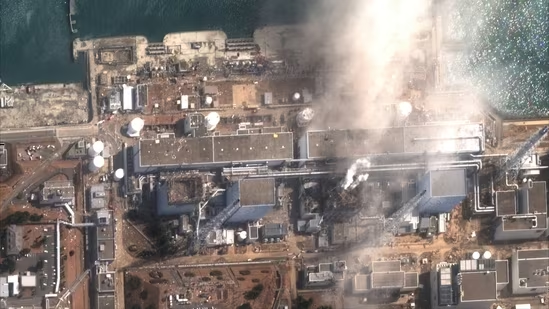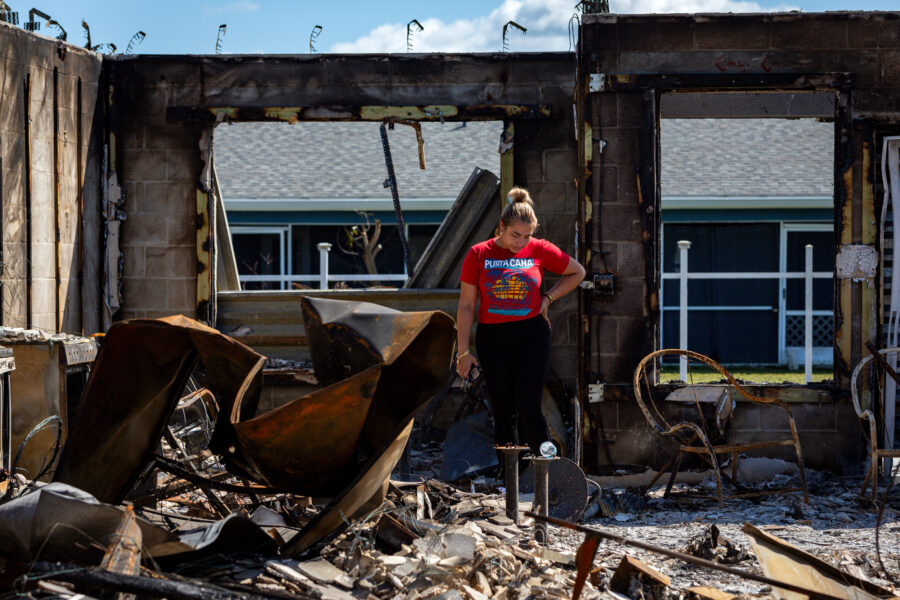Japan can now release Fukushima's ‘radioactive water’ into ocean. What are the concerns surrounding it?
Japan recently received approval from the United Nations nuclear watchdog, the International Atomic Energy Agency (IAEA), to release over a million tons of “treated radioactive water” from the damaged Fukushima Daiichi nuclear power plant. This approval has faced objections from local fishing communities and other countries such as China and South Korea, which share international waters, due to concerns about the potential impact.

Also Read | Explosives? Mysterious objects spotted in Russia-occupied Ukraine nuclear plant
The IAEA conducted a safety review and concluded that the discharge would have minimal effects on the environment, aligning with water releases from nuclear plants in other locations. The nuclear agency said that the safety review addressed technical questions and provided clarity on the science behind the planned discharge, ensuring that it would have “negligible radiological impact on people and the environment.”
But local Japanese fishing communities have voiced their objections to the plan, fearing that it would undermine over a decade of efforts to rebuild their industry. They anticipate a decline in consumer trust, leading to decreased demand and lower prices for their catch. Although Fukushima authorities have implemented stringent radiation testing measures, many consumers remain skeptical about the safety of fish and produce from the region.
Also Read | Germany to shut down final nuclear reactors. What's behind atomic energy exit
When and how will this radioactive water be released?
The Japanese government has announced that the release of water will commence before the end of summer. The country's Nuclear Regulation Authority confirmed on Friday that the necessary equipment and facilities for the water discharge have successfully passed their inspections.
Prior to its release into the ocean, Japan has stated that the water will undergo filtration to eliminate the majority of radioactive substances, with the exception of tritium, a hydrogen isotope that is challenging to separate from water. The treated water will be diluted to levels well below what is internationally approved.
What is Tritium?
Tritium is considered to be relatively harmless because it does not emit enough energy to penetrate human skin. But when ingested – via seafood, for example – it can raise cancer risks, according to The Guardian report that quoted a Scientific American article said in 2014.
The IAEA says nuclear plants around the world use a similar process to dispose of wastewater containing low-level concentrations of tritium and other radionuclides.
Objection from China, South Korea
The IAEA's report has received strong criticism from Beijing, which believes that endorsing a plan with potential risks to marine life and human health is “unacceptable”, despite Japan and the IAEA assuring minimal environmental impact.
Due to safety concerns, China announced on Friday that it will enhance its scrutiny of food imports from Japan. The country's customs authority stated that it would impose a ban on food imports from 10 Japanese prefectures affected by the water release and enforce strict radiation tests on food from the remaining regions of Japan.
Also Read | Biggest rise in China's nuclear weapons, global stockpile also increases: Report

In response to the planned water release, hundreds of people in South Korea's capital protested on Saturday, demanding Japan to abandon its intentions. Meanwhile, the head of the United Nations' nuclear agency held discussions with senior officials regarding public concerns over food safety.
Earlier on Friday, South Korea announced that Japan's proposal to discharge treated radioactive water from the Fukushima nuclear plant meets global safety standards, and it respects the approval granted by the UN nuclear watchdog for the release. South Korea's approval comes after conducting its own evaluation and amid recent efforts to improve bilateral relations between the two Northeast Asian countries.
Fukushima meltdown
A massive earthquake with a magnitude of 9.0 occurred on March 11, 2011, leading to a destructive tsunami that damaged the power supply and cooling systems of the Fukushima Daiichi nuclear plant. As a result, reactors No. 1, 2, and 3 experienced meltdowns and released a significant amount of radiation. At the this nuclear plant, around 1.33 million cubic meters of water, including groundwater, rainwater, and water used for cooling, have accumulated.
(With inputs from agencies)
Disclaimer: The copyright of this article belongs to the original author. Reposting this article is solely for the purpose of information dissemination and does not constitute any investment advice. If there is any infringement, please contact us immediately. We will make corrections or deletions as necessary. Thank you.
Title:Japan can now release Fukushima's ‘radioactive water’ into ocean. What are the concerns surrounding it?
Url:https://www.investsfocus.com









